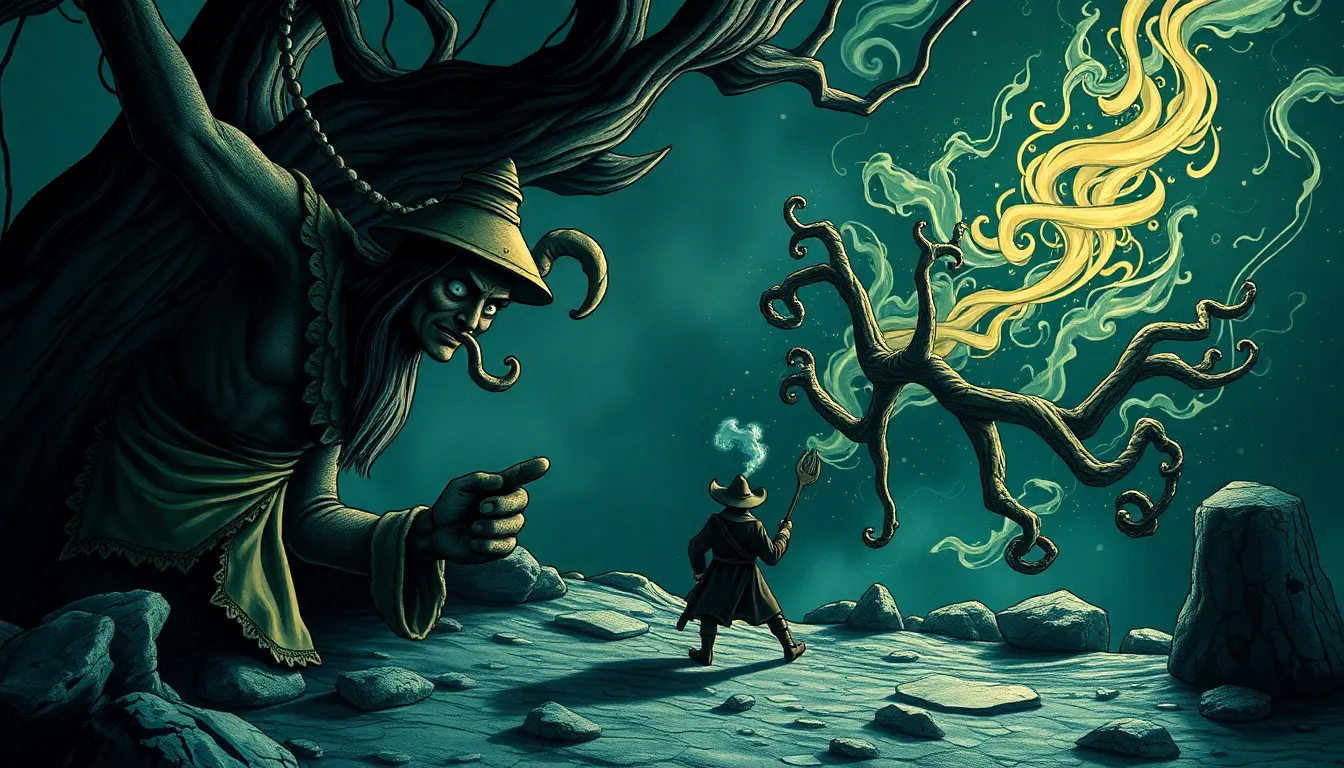The Arena of Legends: Epic Mythological Showdowns
Introduction to Mythological Showdowns
Mythological showdowns are epic confrontations between gods, heroes, and mythical creatures that often define the narratives of ancient cultures. These battles are not merely physical encounters; they represent the clash of ideals, moral dilemmas, and the struggle between chaos and order. Mythology plays a crucial role in shaping cultural identities, offering insights into the beliefs and values of various societies throughout history.
From the grand tales of Greek mythology to the intricate stories of Hindu epics, these showdowns capture the imagination and provide a lens through which we can understand the human condition. They serve as allegories for personal and societal conflicts, revealing the timeless nature of struggle and triumph.
The Concept of the Arena in Mythology
Arenas have historically held significant importance in the cultures of ancient civilizations. Often seen as sacred spaces where divine and heroic battles take place, the arena symbolizes the ultimate testing ground for strength and valor.
In mythology, the arena serves as a battleground where gods and heroes face off, each embodying different aspects of human nature. The symbolism of the arena can be found in various mythologies:
- Greek Mythology: The Colosseum of Olympus, where gods like Zeus and Poseidon may have clashed.
- Norse Mythology: Valhalla, where warriors prepare for the final battle of Ragnarok.
- Hindu Mythology: The battlefield of Kurukshetra in the Mahabharata.
Key Figures in Mythological Showdowns
Mythological narratives are populated by an array of gods and heroes, each with unique strengths, weaknesses, and character traits. Notable figures include:
- Zeus: King of the Greek gods, known for his thunderbolts and authority.
- Thor: Norse god of thunder, famed for his strength and Mjölnir.
- Rama: The hero of the Ramayana, epitomizing virtue and righteousness.
Their character traits often influence the outcomes of battles. For instance, Hercules’ strength is matched by his impulsiveness, while Odin’s wisdom is countered by his willingness to sacrifice.
Famous Mythological Showdowns: Greek Legends
Greek mythology is replete with legendary conflicts that exemplify the power dynamics of the pantheon. One of the most significant battles is the Titanomachy, the war between the Titans and the Olympians, marking the shift of power in the cosmos.
Another key series of conflicts involves the Twelve Labors of Hercules, where the hero encounters various monstrous beings, each representing a different challenge and moral lesson.
Key themes and lessons from these Greek showdowns include:
- The consequences of hubris.
- The importance of cleverness and strategy over brute strength.
- The idea of redemption through heroic deeds.
Norse Mythology: Ragnarok and Beyond
The prophecy of Ragnarok foretells a cataclysmic battle that will result in the death of many gods, including Odin and Thor. This final showdown is significant as it encapsulates themes of fate versus free will, illustrating the inevitability of destiny in Norse belief.
Key figures involved include:
- Odin: The Allfather, who seeks to delay Ragnarok.
- Thor: Defender of humanity, facing the serpent Jörmungandr.
- Loki: The trickster god, whose actions lead to the chaos of Ragnarok.
Hindu Epics: The Mahabharata and Ramayana
In Hindu mythology, the Mahabharata presents an epic battle between the Pandavas and Kauravas, exploring themes of dharma (duty) and morality. The conflict on the battlefield of Kurukshetra is not just a physical battle but also a philosophical one, as characters grapple with complex moral dilemmas.
Similarly, the Ramayana features the showdown between Rama and Ravana, symbolizing the struggle between good and evil. The lessons embedded in these epics provide profound philosophical teachings, such as the importance of righteousness, loyalty, and sacrifice.
Celtic Legends: The Tuatha Dé Danann and Their Rivals
The Tuatha Dé Danann are a race of deities in Irish mythology whose legendary battles against the Fomorians illustrate the theme of light versus darkness. Their conflicts often involve supernatural elements, showcasing the magical aspects of Celtic lore.
The significance of these battles lies in their representation of the struggle for dominance over the land and the balance of nature. The battles are rich with symbolism, reflecting the Celtic worldview and its connection to the earth and the supernatural.
Modern Interpretations of Mythological Showdowns
Mythological showdowns have transcended their ancient origins, finding new life in contemporary literature, film, and video games. Adaptations often reimagine these epic battles, making them accessible to modern audiences.
Examples include:
- The Marvel Cinematic Universe, which incorporates Norse mythology through characters like Thor and Loki.
- Rick Riordan’s series, which blends Greek mythology with contemporary settings.
- Video games like God of War, where players engage in battles against mythological figures.
This impact of pop culture has reshaped our perception of ancient myths, making them relevant in today’s context.
The Legacy of Mythological Showdowns in Today’s World
Mythological narratives continue to influence contemporary society and culture. The archetypes of heroes and villains rooted in these stories resonate with modern conflicts and personal struggles, serving as frameworks for understanding human behavior.
The fascination with epic battles and legendary heroes persists in today’s media, as audiences are drawn to stories that reflect their own challenges and aspirations.
Conclusion: The Enduring Appeal of Mythological Showdowns
In summary, the arena of mythological showdowns offers a rich tapestry of stories that explore the complexities of human nature, morality, and the eternal struggle between good and evil. These narratives not only entertain but also educate, providing timeless lessons that remain relevant in our modern world. The enduring appeal of these epic battles highlights their significance in our cultural consciousness, ensuring that the legends of old continue to inspire generations to come.



